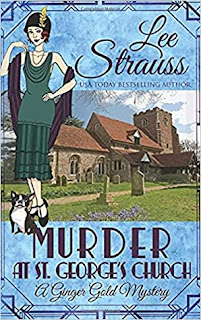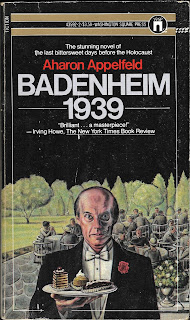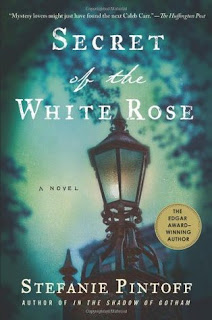Not I, Said the Sparrow (1973) by Richard Lockridge
This is the 21st entry in the Inspector M. L. Heimrich series. Heimrich and his wife Susan are surprised to find themselves invited to a birthday party for "King" Arthur Jameson. The Jameson family is one of the old, moneyed families in the Van Brunt area and have lived on a high hill at The Tor for years. Not the sort of people who mix with state troopers, but Susan used to be an Upton (who were one of those families before losing their money) and that name still means something, apparently. The inspector isn't particularly keen on this type of high-class party, but Susan actually wants to go and he dons his black tie accordingly.
It's an even bigger surprise when Jameson, who is 72 or 73 (no one seems to be sure), announces he's going to marry his secretary, a woman a third his age. The young man who came with Dorothy Selby is very surprised indeed. Heimrich had inferred from their behavior that Dorothy Selby and Geoffrey Rankin were more than just friends (despite what they said when introducing themselves). But the biggest surprise of all is still to come...
Arthur Jameson is found early the next morning in his fishing boat, shot through the neck with a steel arrow. Somebody has made sure that the wedding will not happen. Were his heirs, sister Ursula, son Ronald, and daughter Estelle, hoping to prevent a change in the dispersal of his fortune? If so, they were too late--Jameson made and signed a new will naming Dorothy Selby as his residual legatee the night of the party. Perhaps Dorothy knew about the new will and decided that she'd dispose of her elderly fiance and still get the cash. Or maybe Geoffrey Rankin thought he'd prevent his "friend" from throwing herself away on an elderly husband.
As Heimrich and Lieutenant Forniss work their way through everyone's statements, they are looking for those with some prowess with a bow and arrow. But then there is another near-successful attempt at murder disguised as accident and their attention is drawn to a previous accident which resulted in the death of Jameson's second wife. Is the answer to the present murder to be found in the past? Heimrich begins to think it is.
It was great fun to return to a more standard mystery with some of the Lockridge series characters after a couple which were either more suspense-driven or missing the familiar faces. Watching Heimrich and Forniss go to work and get to the point where the light bulb goes off is always enjoyable.
Forniss said, "I suppose we're thinking pretty much the same thing, M. L.?"
And, of course, they are thinking the same thing. And they're right. I got there before they did, but they had to find some tangible evidence. Heimrich doesn't utter his standard "the character must fit the crime," but the solution does feature a bit of psychology--figuring out which character fits in with all of the elements. A good, solid read. ★★★★
First line: By mid-September in the latitude of the town of Van Brunt, Putnam County, State of New York, one begins to snatch at mild sunny days, which soon will be in short supply.
Last line: He carried tray and a mixer and chilled glasses back to the brightness of the fire and the brightness which was around his wife.
**************
Deaths = 3 (one shot w/arrow; one natural; one hit on head)









.jpg)
.jpg)
.jpg)


.jpg)

.jpg)

.jpg)
.jpg)

.jpg)
.jpg)

.jpg)

.jpg)

.jpg)




















